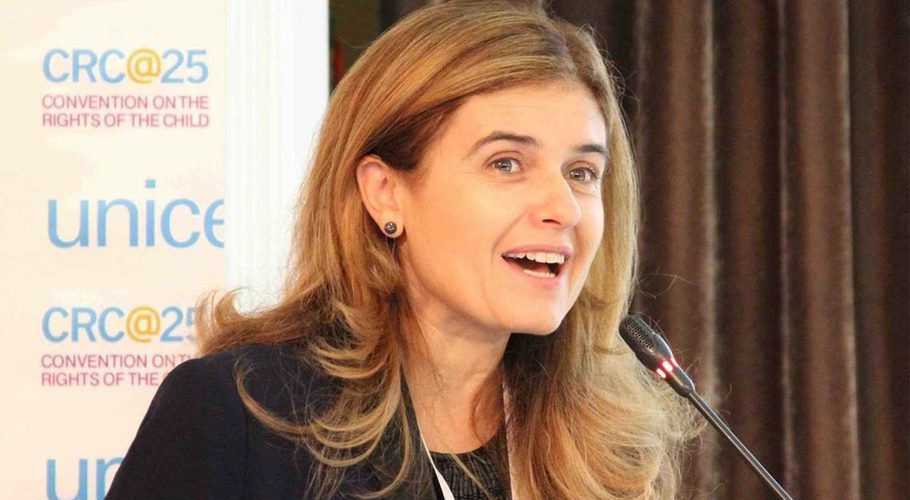CAIRO: The United Nations International Children’s Emergency Fund (UNICEF) has warned of overwhelming impacts of floods on children in 2022, with particular reference to the devastation caused in Pakistan, Chad, Gambia and Bangladesh.
Speaking at COP27 moot in Sharm El-Sheikh, Egypt, the head of the UNICEF delegation for COP27, Paloma Escudero said “according to a UNICEF analysis released today, 27.7 million children in 27 countries have been impacted by flooding so far this year, just in 2022 and counting.”
Also read: Pakistan needs over $16bn for post-flood reconstruction
She said in Chad, the Gambia and north-east Bangladesh the worst floods in a generation were recorded this year. For Pakistan, the floods were the worst on record.
Paloma Escudero said “I saw this myself last week when I was in Pakistan visiting the worst-affected areas. There, 11 million children are in need of immediate assistance.
Narrating details about her Pakistan visit, she said “in Larkana, I met a 15-year-old girl called Sugrah, who showed me the rubble of her beloved home. Two months earlier, as floodwater seeped into her house, the roof above her began to collapse.”
Also read: France donates €2 million for flood relief operations
She said “terrified, she grabbed her younger brothers and sisters and fled to a nearby bypass, where they lived for weeks in a makeshift tent made of plastic bags and sticks. But Sugrah was lucky. In a village where the flood water reached 5 feet, or 1.5 meters, villagers told us that not all the children who tried flee made it. Now consider Sugrah’s story, but multiply it by the highest factor.”
Paloma Escudero said in the weeks since the unprecedented floods devastated Pakistan, the emergency had become a multi-headed monster, adding that Pakistan’s worst floods in 100 years had killed at least 615 children, left 10 million girls and boys needing immediate, lifesaving support.
Also read: 27,000 schools in Pakistan remain inaccessible due to devastating floods: UNICEF
She said the floods had contaminated drinking water, which is spawning deadly water-borne diseases such as acute watery diarrhea, which compounds already acute malnutrition.
“Estimates suggest close to 1.6 million children in flood areas could be suffering from severe acute malnutrition,” she said, adding that the stagnant water was a perfect breeding ground for mosquitoes, increasing the risk of malaria and dengue.
Also read: WHO warns of increasing public health risks in flood-affected Pakistan
“There are crises on top of crises, without urgent action, many more vulnerable children and young people will lose their lives in the days and weeks to come. And without climate action, hundreds of millions more will almost certainly suffer like those in Pakistan,” she warned.
She said “we are reaching final warnings. Right now Pakistan is drowning in the world’s inaction. One of the most important but heartbreaking things about climate change is that its most horrific impacts are often reserved for those who are least responsible for creating the problem.”
Paloma Escudero pointed out that according to international climate scientists, the recent Pakistan floods were made worse by climate change, and scientists had predicted that the intensity of the country’s rainfall would “significantly” increase as the planet continued to warm. “Pakistan is on the frontlines of the climate crisis but its contribution to global emissions is less than 1 percent,” she added.




































